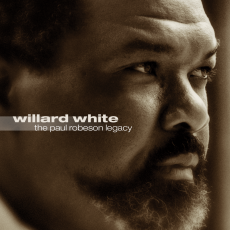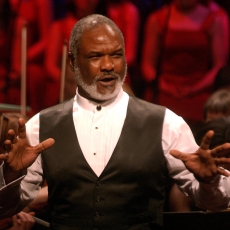The Paul Robeson Legacy - The Times
The jazz trumpet sounds, then a bass-baritone starts its caress. "My soul is a witness for my Lord," sings Willard White. Pure velvet. And we're off, far from White's opera roles, on a crossover journey through The Paul Robeson Legacy.
Paul Robeson? The press release tries to explain: "one of the most remarkable performers of the 20th century - he combined the pulling power of the Three Tenors with the moral authority of Nelson Mandela."
Yet during his life no comparisons were needed. Robeson was Robeson: a giant figure among black Americans with a bass voice to match and a noble presence that saw him through many bitter racial and political battles. This is not a legacy to take on lightly.
Yet since White has built entire concerts out of Robeson material, a trip to the recording studio like this was only a matter of time. He sings spirituals. He sings a Scottish folk song, the Eriskay Love Lilt. He sings Joe Hill, Earl Robinson's and Alfred Hayes's tribute to the railroad worker shot by bosses in 1915 but a man, the song says, who never dies.
All of these Robeson used in his recital, delivering them in his all-enveloping, richly coloured voice to unobtrusive piano accompaniment by the faithful Lawrence Brown. White's approach is different. He comes with a small jazz combo (trumpet, keyboards, bass, guitar and drums) and arrangements by Neal Thornton. Robeson, the untrained singer delivered his material relatively straight. White, a graduate of the Juilliard School of Music, glides far more loosely over words and music, jazzing along with the instruments.

